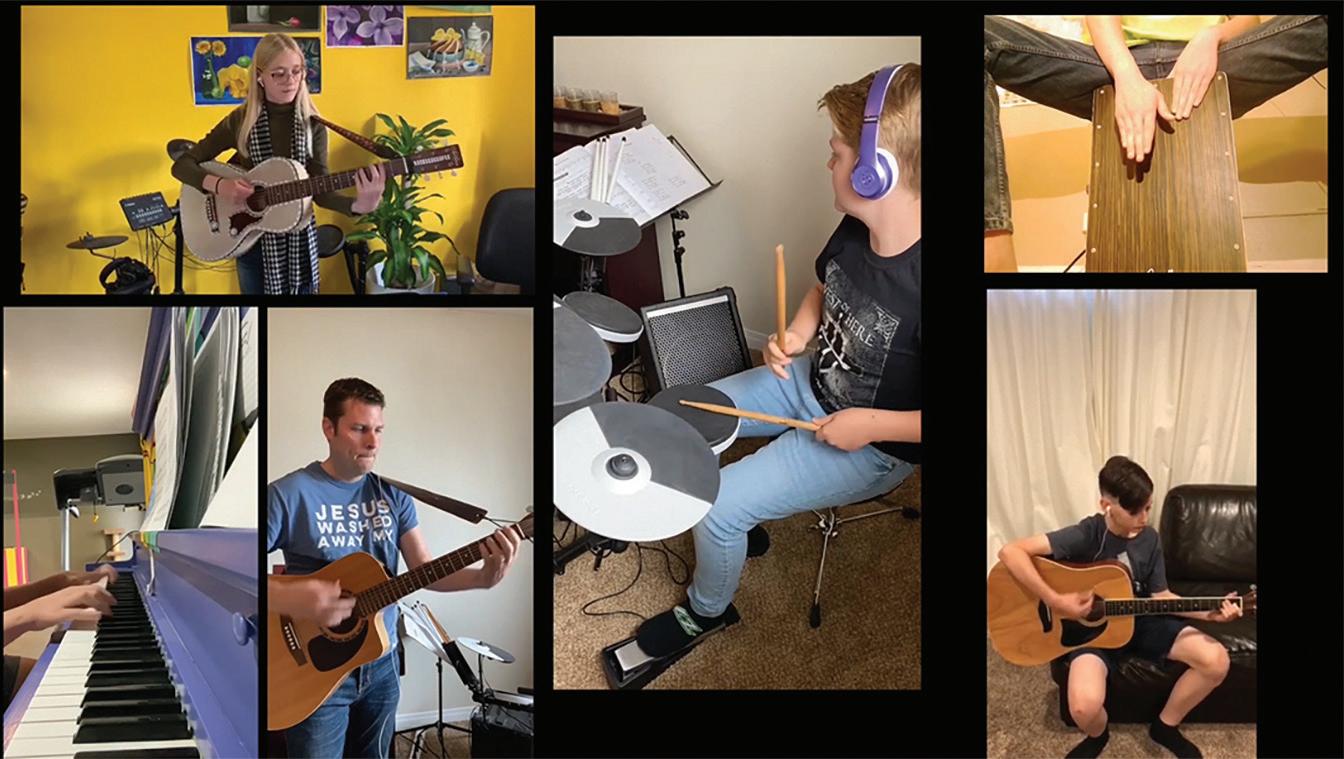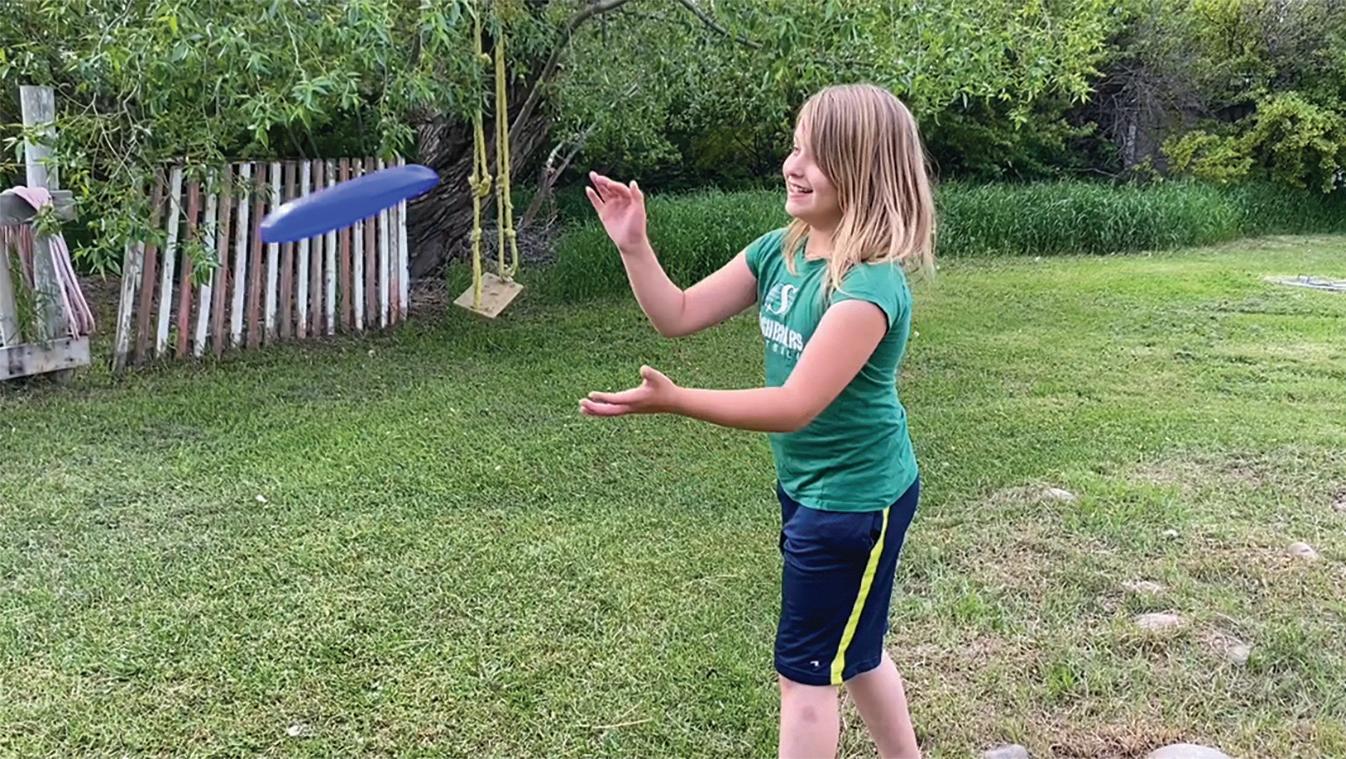
5 minute read
Adapting to Change • Summer School 2020
Adapting to Change
The new Office for Continuing Education and Institutional Research headed by Dr. David Jeffrey will broaden the career horizons the university offers.
Advertisement
Shifting government expectations have always required universities to adapt. Recently Alberta Education has changed how it measures institutional success, moving to a performancebased model.
In response to this change, Dr. David Jeffrey, Assistant Professor of Business, was invited to direct the new Office for Continuing Education and Institutional Research.
Dr. Jeffrey’s initial responsibility is to establish new certificate and diploma programs. At this time, current academic courses and departments will be providing the bases for the programs under discussion. Dr. Jeffrey does not discount the possibility of adding vocational programs in future. In fact, he sees a number of opportunities for such training on campus.
But whether or not a proposed program becomes feasible depends to a large extent on ensuring that “we work within the mandates of the government of Alberta.”
Under consideration now is a diploma for nursing students who spend 18 months on Burman’s campus before transferring to Kettering, a sister college in Ohio. Jeffrey explains, “A diploma will recognize the valuable stage of education that students complete here before moving on to finish their nursing degree at Kettering College. In this case, the diploma represents not the completion of a skill set, but a marker in their educational journey.”
A one-year certificate in bookkeeping, on the other hand, could attract those not interested in a four-year degree. These students would acquire specific skills that are in demand in the marketplace and thereby enhance their employment opportunities.
In consultation with faculty, administration, and representatives of the community’s labour market, Dr. Jeffrey is investigating the most appropriate programs to develop. Students will benefit from improved qualifications, and the university will be well-positioned to meet the Alberta government’s performance-based assessment of higher education.
Dr. Jeffrey believes the addition of new diplomas and certificates will play a role in maintaining the university’s operating grant in the coming years. He points out, “These are high-stake issues for our institution and our stakeholders, and for all of our faculty and staff who work here and depend upon that funding.”
Dr. Jeffrey has taught at Burman since 2005, and has held joint administrative appointments in the past.
David Jeffrey says, “I miss the classroom interactions with my students, but I am enjoying the challenges of my new administrative role.” Each year the Seventh-day Adventist Church in Canada (SDACC) hires Burman University graduates to teach in primary and secondary schools across the nation. Almost half of the hundreds of teachers teaching in SDACC schools received their training on Burman’s campus.
Summer School 2020 Thrives
The SDACC looks to Burman to provide summer school options for teachers. In the past, these courses were usually offered on campus and met various certification and re-certification requirements. However, over time it became obvious that teachers preferred taking classes online. For the last ten years there has been a gradual transition away from traditional face-to-face classes to online classes.
As SDACC teachers were requesting more online classes, some students in the teacher education programs at Burman were also seeking ways to advance their degrees by taking online summer classes. So, in the summer of 2018, Burman University tried to meet the needs of both groups by offering fully accredited classes in four-week sessions to SDACC teachers as well as Burman students.
New courses point to need for relevant offerings
When summer registration opened in 2019, more than 40 SDACC teachers registered for a new course: “Teaching for Truth and Reconciliation.” Three School of Education faculty— Shirley Freed, Isaac Darko, and Gina Guiboche— developed the course collaboratively with Campbell Page, the Indigenous Ministries Director for SDACC. Both Dr. Page and Ms. Guiboche are of First Nations descent.
The four worked together over a period of about three months in a deliberate effort to meet the provincial mandate
for Indigenous studies for all education majors. The course explores Indigenous worldviews, human rights issues, and impacts of European contact (particularly on education) within the context of Christianity.
Chloe Weir, the new chair of the School of Education, points to the value of including “Indigenous ways of knowing in our pedagogy. We need to understand each other better, and this is possible through uninhibited discourses with the people in our community.”
The number of registrations for both the 2019 and the 2020 summer sessions is an indicator to School of Education faculty that Canadian teachers deem this knowledge valuable.
Second new course
In 2020, another new course was offered: “Educational Change in Times of Crisis.” Registration was capped at 30 students, but many more had hoped to enroll in the course that focused on “the changes K-12 teachers make when they are required to deliver instruction remotely due to circumstances beyond their control.”
Included in the competencies students were expected to demonstrate were “building personal and collective professional capacities and expertise” and “using technology to enhance knowledge and inform practice.” Again the registrations provide evidence that Burman is offering courses of interest to SDACC teachers.
Yet a third course drawing record enrollments combines two traditional classes: “Bible Methods” and “SDA Doctrines.” Taught by pastor/teacher teams, the course introduces teachers to the new Encounter Bible curriculum used in all SDACC primary and secondary schools across Canada.
The online environment is ideal when providing classes for teachers from British Columbia to Newfoundland. Summer school enrollment has increased by fifty percent from about 40 to 60 SDACC teachers. Including 61 undergraduate Burman students, summer 2020 enrollment stood at 131 in seven classes.
Shirley Freed, recently retired chair of the School of Education, concludes, “We are seeing the value of having Burman students and SDACC teachers in the same course—they learn from one another in a positive synergy!”
Steven Gabrys, vice principal at College Heights Christian School, produced a video collage for one of his “Educational Change” course assignments. Students from four Alberta schools participated.

Steven writes, “This is the first time I’ve had 16 different videos stacked into one take. (I can see that I’m going to need to upgrade my computer if I want to add more!) We never met together as a group. Kids from all over learned a song.
“I shared videos of how to play the chords on the guitar and kids practiced and learned it. Pretty cool for amateur stuff.” The video collage was used at Alberta’s online camp meeting as an education feature.
A second project Steven chose was a Frisbee collage to connect students and faculty at his school and keep them excited about being a part of their school community.

To assist with ease of application and enrollment, Burman administration has enabled complete online application and registration for the first time this year.

